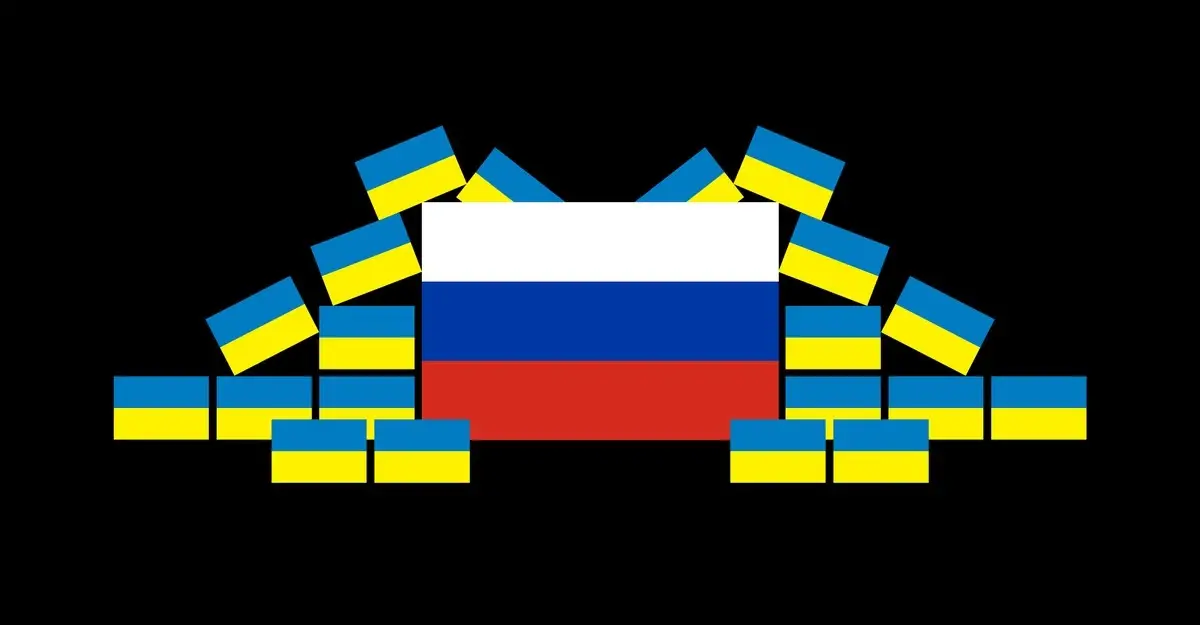Earlier this week, reports began filtering in that Ukrainian forces had entered Russia’s Kursk province, in what many analysts assumed was a small cross-border raid—of a sort that Ukraine has attempted a few times since Russia’s full-scale invasion in 2022. But as the hours and days ticked by and Ukrainian forces moved deeper and deeper into Russian territory, […] and had soon seized more ground from Russia in a few days than Russia has taken during an offensive in the Kharkiv region that began in the spring. As part of the new incursion, Ukraine has been deploying advanced armored vehicles, including German-supplied Marder infantry fighting vehicles—a striking development, given the unease among Kyiv’s allies about being seen as escalating hostilities between the West and Russia.
The initial success of what’s looking more and more like a full offensive shows what the Ukrainians can achieve if they have both the tools and the latitude to fight Russia. Ukraine’s most generous benefactors, especially the United States and Germany, have previously expressed their strong opposition to the use of their arms on Russian soil. […]
Now Washington and Berlin may be softening their positions more than they’re explicitly saying. A Pentagon spokesperson said Thursday that U.S. officials still “don’t support long-range attacks into Russia” but also that the Kursk incursion is “consistent with our policy.” Perhaps President Joe Biden, freed of electoral considerations, can focus more on how best to help the Ukrainians now—and limit the damage that Donald Trump could do to their cause if he wins in November. The White House’s notably bland statement on the Ukrainian offensive on Wednesday was hardly the sign of an administration in panic.
[…]
Throughout this war, widespread electronic surveillance by both sides has frequently tipped each off about the other’s plans. But in recent weeks, Kyiv built up the necessary forces so stealthily that the Russians had no idea what was going to hit them. The Ukrainians apparently carefully arranged for drones and computer hackers to suppress Russian resistance once their soldiers crossed the border. In three days, they came close to seizing the Russian city of Sudzha, through which runs a key rail line close to the Ukrainian border.
[…]
Notably, the U.S. and German governments have not publicly opposed any of this. Perhaps the two allies are no longer as nervous about cross-border operations as they were. Maybe the U.S. has finally come to understand that if Ukraine really is going to have a chance to win, it must be allowed to fight the war properly.
The real answer, of course, is that no one outside the Ukrainian government really knows what is happening—and, so far, Kyiv has been extremely tight-lipped on this operation. Having kept it quiet before it started, the last thing the Ukrainians want to do is let Russia know their intention. Whatever happens, the Kursk offensive has been a well-executed operation to this point. It’s their plan. Let them see to it.
The only constant in this whole shit is that Ukraine always does something analysts think is impossible. Maybe, like, change the analysts
Analysts can only work on existing data. A key to winning a war, is to keep your data secret, whether it be number of units, positioning, strategies, etc.
Maybe, just maybe, the real analysts and strategists, don’t go blabbering all they know to the media.
They knew beforehand that would be the analysis… so naturally they just said “WATCH US SUKA”!
Russia: Spends months trying to capture a random city 25 miles from their border. Ukrainian defenses were somehow “missing” (sabotage). Stalemate.
Ukraine: Spends days capturing a specific important natural gas objective. Russian defenses are also missing (lazy). Success.
I think we should be cautious. In the first days of Russias offensive four years ago they made huge gains quickly. The Russians will move assets and warplanes to the area and Ukraine will be stretched thin in more fronts.
I’m not pro-Russia by any stretch. I love to see Ukraine getting wins. I am just worried that they would have been better off being this aggressive on their existing fronts
An analysis I watched suggests that by occupying Russian territory, they force Russia to either let them dig in long term or stay on the offensive to try to push them out just when Russia would be slowing their summer offensive. Ukraine is fighting a defensive war of attrition and their strategy is to force Russia to keep attacking while Ukraine has a defensive advantage.
Now, this shit is way above my pay grade, but that analysis explains why this could be a smart move. So it sounds like there is reason to be cautiously optimistic.
I’m no general so of course I have an opinion that means nothing. The analyses I’ve read also suggest the same thing - but caution that Russia already has a huge manpower advantage. If they can more effectively fight on two fronts than Ukraine then in a little while I worry that we’ll see these Ukrainian soldiers isolated and cut off, encircled, and captured or killed. Then Ukraine is worse off than they started unless the gains they make in the east while Russia is distracted are immense and war-ending.
Idk. It just seems like a desperation play.
Russia already has a huge manpower advantage
Manpower is not as important as training, which is not as important as technology and strategy.
Russia is already on its “4th army”: best trained forces are gone, reservists are gone, prisoners and noob recruits are gone… they’re now fighting with skeleton crews and mercenaries.
Ukraine on the other hand, has spent the time building up expertise in state of the art drone warfare strategies… which are completely novel and haven’t had a chance to get history books written about how to beat them.
It isn’t as simple as “manpower”.
The one thing that Russia has, and hasn’t used yet, is nukes… but that would open a full box of nasties.
It’s also air power. I think we’re all kind of ignoring that Russia IS gaining ground in the east. The long delay in getting Ukraine more ammo and matériel let Russia overrun entrenched positions.
I think the most positive way of looking at this is - you attack where you can and not where your enemy expects you to. Ukraine has never been able to reclaim territory in large amounts. So maybe in a peace deal they can “trade” territory instead.
Russia hasn’t been able to establish air dominance for 4 years, they advance at a snails pace, fighting for every 100m of land against swarms of drones decimating their troops, while Ukraine has been conceding each 100m of land by losing drones with as few people as possible.
Now Ukraine has invaded Russia, taken over a GazProm control station, and gained control of a rail line that Russia used to supply its troops on the front. For how long will they be able to advance those 100m by 100m, without supplies?
Ukraine now also has some F16s they can use to tip the scales in air dominance.
A month or so ago, Ukraine announced plans to produce at least one million drones by end of year. That’s a thousand drones for each Km of the Russian front, or one drone per meter, organized in swarms and waves with “mothership” control drones. It’s a strategy with no historical precedent, that Russia has no clue how to respond to… or at least has been highly ineffective in responding to.
Peace talks right now are being proposed by Russia, which usually means they’re in a weaker position and they know it. They’re running out of money, to the point that they want to crack down on the rampant corruption that held the whole system together. If they really do, then all bets are off on which general will be the first one to propose sticking Putin’s head on a spike.
I don’t know that I agree about air dominance. Ukraine has been bombarded by glide bombs, and Russia is getting a lot of value out of artillery and air support to soften positions before rolling in their conscripts.
I’m not saying that invading or counterattacking is definitely a mistake. I’m worried that those troops would be better utilized at the front. Either way we will see how this plays out as Russia repositions troops over the next week or so. Hopefully Ukraine can hold the line and keep from getting encircled
Maybe. But they can’t just cede all the initiative to Russia, either.
Other than lines on a map what objectives have been achieved?
If they can cut off Russian rail supply into occupied Ukraine, then a lot. If they can cut off Russian natural gas exports, then a lot. If they’re just there for the sake of being there, then nothing.
I sincerely hope they accomplish those things, too
That’s what I’m seeing as well. I thought this was largely a propaganda move to show Russia isn’t as strong as thought to the Russian people. It’s an attack on Putin more than anything else.
Don’t see why there should be any political opposition from the West for Ukraine going deep into Russia. Russia is the agressor invading them, after all. Anything between Kursk and Vladivostok is fair game.
Propaganda has lead a depressing number of people to believe exactly the opposite. MTG literally said, “what, you think Putin just decided to invade Ukraine?”
Maybe the U.S. has finally come to understand that if Ukraine really is going to have a chance to win, it must be allowed to fight the war properly.
Doubt unfortunately: https://www.forbes.com/sites/davidaxe/2024/08/05/ukraine-had-a-chance-to-blow-up-russias-best-warplanes-on-the-tarmac-the-white-house-said-no-and-now-its-too-late/
Not sure why Ukraine can’t use Western to hit military targets in Russia, how is Ukraine supposed to win a war when it cannot return fire?
Why? Simple: Western countries don’t feel like getting pulled into exchanging nukes with Russia. Yet.
As already demonstrated US allowed Ukraine to use HIMARS on targets near Kharkiv and that that did not leave to nuclear war. Why not also let Ukraine use ATACMS?
See also: https://en.wikipedia.org/wiki/China's_final_warning
HIMARS is a launch platform, its range depends on which rockets it launches.
ATACMS is a missile that can be launched from HIMARS, it has a way longer range, the difference between a rocket and a missile is that a missile can maneuver freely, and the ATACMS can also carry a nuclear payload.
I know about the eternal warning stuff. In this case I think it’s more about plausible deniability: it’s harder to accuse Ukraine of initiating a nuclear war, if they don’t even use nuclear-capable missiles against Russian territory. I wouldn’t be surprised if Putin was ready to nuke some small city of his own, just to have an excuse to launch some tactical nukes against Ukraine.
Russia’s nuclear sabre rattling isn’t credible because their nuclear arsenal is not dispersed. Dispersal is the key to a nuclear exchange and it’s why both sides spend so many billions on submarines and stratobombers. Since the cold war Russia’s nuclear assets have been sitting grouped at bases around the country. If Putin wants to be credible he has to first order the planes in the air and the submarines to sea. But the submarine he sent to Cuba was accompanied by a tug “just in case.”
deleted by creator
I don’t think they’re going home any time soon either. Great to see.






